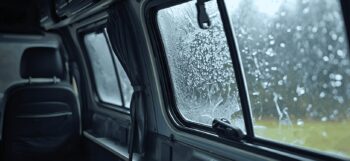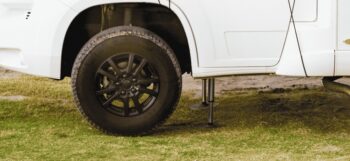If your passion for caravanning hasn’t cooled along with the weather, there are still opportunities for winter holidays. Someone once said that there’s no such thing as bad weather, just the wrong equipment, and we would have to agree. The only thing standing between you and an excellent winter break in your touring caravan is lack of preparation.The biggest problem you will face during a winter caravan holiday is the cold, particularly if you intend to stay in the UK. The materials used to construct caravans are far less insulating than the bricks and mortar you’re used to at home, and it won’t take long before you start to feel the winter chill. In this article we highlight some things you can do to make winter caravanning a cosier and more pleasant experience, during the winter months. Switch to propane gasPropane is better suited to colder climates and will work in temperatures as low as -40C, while Butane works well in warm climates but is ineffective as temperatures fall to around freezing (0°C). For UK caravans produced since the 1970's, no adjustments should be needed for appliances to run on either Propane or Butane. Consider installing an on-board water tankIf you are concerned that sub-zero temperatures will cause partial freezing of your external water container, installing an indoor tank can prevent this, space allowing of course. Winter conversion kits and gentle pipe heaters can also remedy this issue. Beat the freezeIt is advisable to add anti-freeze to your wastewater system, but you should NEVER add it to your drinking water. Most plumbing suppliers and builders’ merchants will have a variety of options available. Remember never to use salt in toilets or similar systems, as it can be corrosive. Heating mattersMake sure that your heating system is in good repair and safe to use. If you normally use a heater which is not suitable for all-night or unsupervised operation, it is advisable to consider a replacement. Freestanding heaters and radiators will also be worth their weight in gold – never underestimate how miserable a freezing cold caravan can be. If you use a water-based heater, remember to drain it fully after your holiday; we’re sure you don’t want to start next season with damaged pipes. Caravan Helper share some options on their blog. Additional insulationWhile most new caravans have better insulation than older models, you may find that you still need extra protection from the elements. If your windows aren’t double-glazed, you can buy plastic sheeting from good DIY stores, which can be used to create an extra layer to reduce the escape of heat through windows. This sheeting, which is designed for use in houses, can be attached to the inside of your caravan windows with Velcro for a temporary fix, or in a proper frame as a permanent solution. Combatting condensationCondensation occurs when warm air collides with cold surfaces, or when there's too much humidity in your caravan. When this moisture-packed warm air meets a chilly surface, it quickly cools and releases the water, which turns into condensation on the cold surface. As a caravan is a small space, it is naturally prone to condensation. Get into the habit of wiping away moisture wherever it has settled before it has the chance to breed permanent mould. Moisture-absorbing crystals and de-humidifiers can be great for clearing condensation and may reduce the need for constant wiping. Pack accordinglyIn addition to warm clothing and thermal undergarments, waterproof top layers, such as coats and trousers will not only keep you dry while you’re out and about, but they can save you the laborious task of drying out wet clothes. A good quality duvet and some extra blankets for layering are a must. Teddy fleece bedding will add a warm feel to your bed without irritating the skin, but fleece is highly combustible, so it needs to be treated with a fire-retardant, for safe use. Consider an awningNot only will it give you more space during the summer, but it will also double as storage for wet boots and outdoor gear during the winter. Bringing wet items inside will only increase the level of cold, damp air circulating around the caravan. An awning will also help to keep some of the warm air in the caravan when the door is opened. Make sure you use an awning that is suitable for winter use and can withstand high winds, rain, and light snow cover. Rainwater and snow can do some serious damage to awnings, so choosing an awning with a sloping top can prevent pooling. Heavy duty awning pegs will also be needed for hardstanding pitches and frozen ground. Read more about our feature rich touring caravan cover,here. |
- Home
-
Find your insurance
Motorhome insurance
Caravan insurance
Park home insurance
Motor insurance
Static caravan insurance
Travel insurance
- Renew your policy
- Retrieve a quote
- Make a claim
- Contact us
- Your Policy Documents











